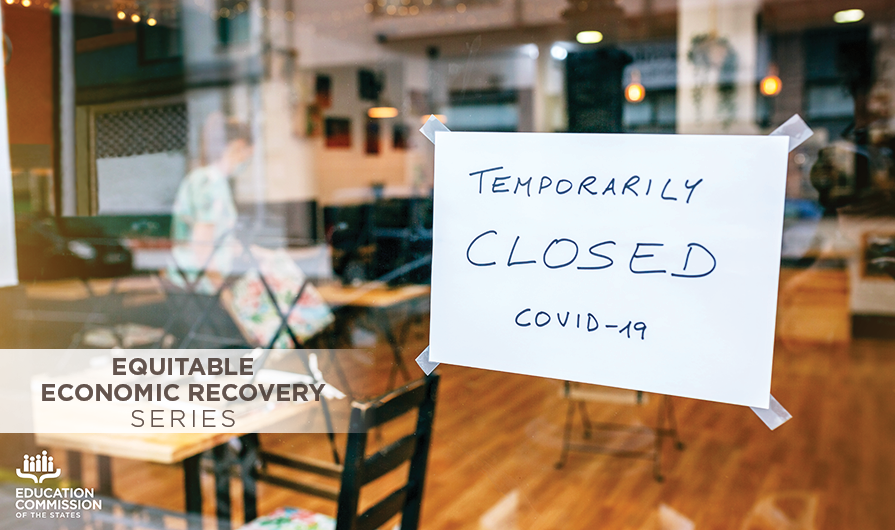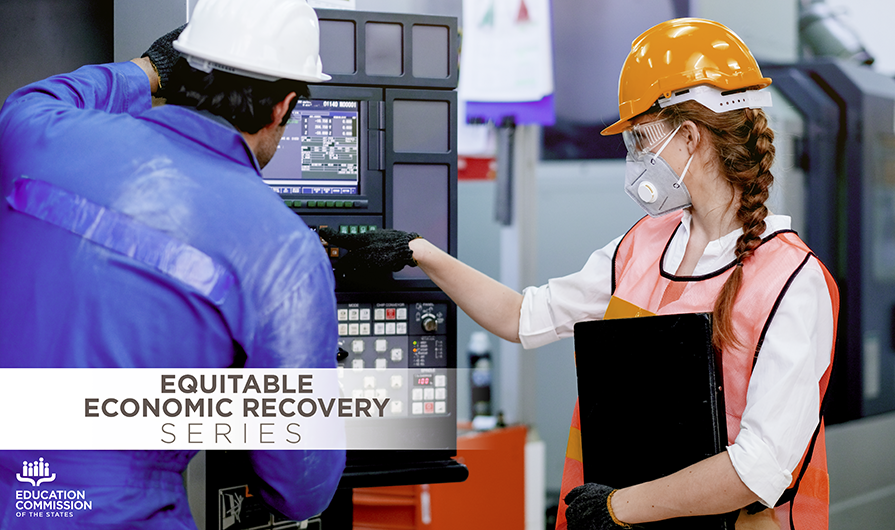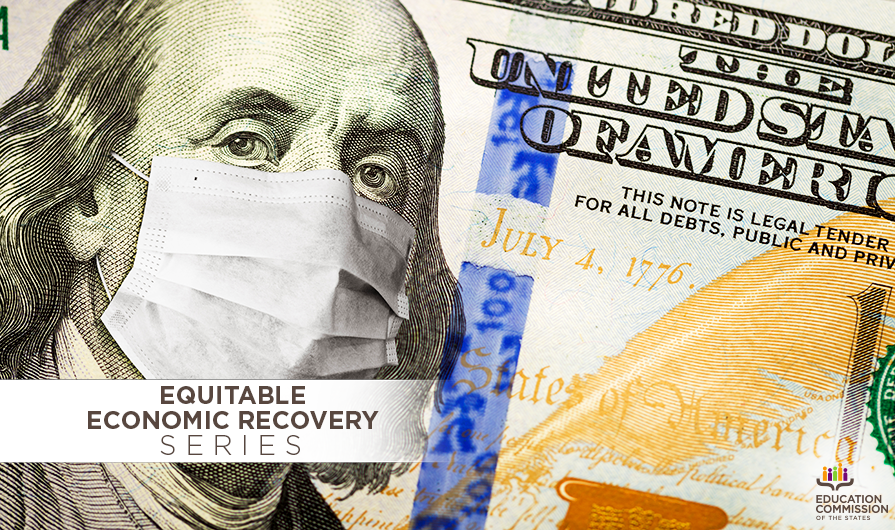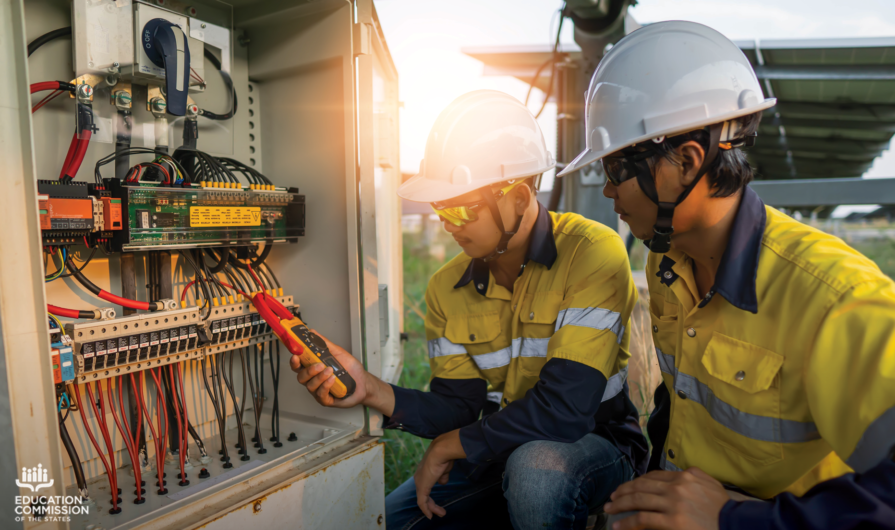Traditional models of postsecondary education and training – with siloed systems and slow accumulation of course credit hours and credentials – no longer meet the needs and abilities of learners and workers or the demands of employers in the modern economy. All students and workers – regardless of age or employment status, and especially members of underserved and underrepresented communities – need coherent lifelong learning pathways that are accelerated, efficient, and offer affordable options for attaining postsecondary credentials and skills valued in the labor market.
State leaders can address these challenges by making education and workforce systems relevant and responsive to the needs of workers, learners and employers. Relevant and responsive systems provide clear opportunities for people and eliminate barriers that far too often prohibit access and persistence along educational pathways.
Create Aligned Education and Workforce Systems
States can incentivize a range of education and training activities that support people in accessing and obtaining skills needed to enter and thrive in the labor force. State leaders and policymakers have an opportunity to look holistically across K-12 education, postsecondary, workforce development and economic development systems to eliminate barriers, and to align goals and collaborate across sectors to create inclusive, supportive opportunities for people to develop skills, earn credentials and enter careers.
In 2021, both chambers of the Florida Legislature passed comprehensive legislation that aligns K-12 school systems, community colleges, universities, and workforce agencies in common workforce development goals and to strengthen career navigation and advising support for young people, adult learners and job seekers.
Reforms to Developmental Education
State developmental education reform, specifically corequisite remediation, removes obstacles posed by prerequisite remedial courses in accessing credit-bearing courses. By placing students directly into gateway courses with concurrent student supports, students can enter into credit-bearing courses sooner. By accelerating these paths to credit-bearing courses, it could support degree and credential attainment.
In 2017, California enacted legislation that clarifies existing regulations and ensures that community college students are not placed into remedial courses that may delay or deter their educational progress.
Recognize Skills and Competencies
State policymakers can also support a skills-based education and employment infrastructure that embraces outcomes-focused innovations and recognizes people’s current skills as the principle measure of how much they’ve learned and their ability to do a job. Supporting competency-based education and credit for prior learning can help learners obtain credentials quicker. However, this highlights the need for a system where people can effectively communicate the skills and competencies they’ve gained to ensure employers recognize those skills.
States can support the development of “passports” or learning employment records that list individuals’ skills and credentials and ensure records are recognized across educational institutions, workforce systems, and employers to enable seamless transitions between learning and employment opportunities. State efforts to support such an initiative may include developing robust state longitudinal data systems that provide uniform data standards to ensure that records are transferable so that educators and employers can share data on skill demands and training in real time. States may also convene meetings of key stakeholders and fund pilot programs that utilize innovative technologies.
Expand Work-Based Learning
States can also integrate learning and work by providing people with real-world opportunities to apply the lessons learned in classroom settings, build professional networks, earn money while they learn and get a head start on the road to a career. This can include establishing a statewide initiative to promote the expansion of high-quality work-based learning experiences, or investing in intermediary organizations that create the infrastructure needed for successful work-based learning.
In July 2020, Colorado passed legislation supporting CareerWise Colorado, a statewide intermediary that supports a youth apprenticeship program where participants split time between high school and the workplace. Apprentices begin the program in grade 11 and finish one year after graduating high school. They earn money and gain hands-on experience. When finished, the student earns a nationally recognized certification and college credit. Participating employers add well trained workers to their talent pipelines, have opportunities to mentor young people and help build a diverse workforce.
We highlighted just a few examples of areas states can focus on to redesign education and workforce development systems in response to today’s economy and the needs of workers and learners. To learn more about the strategies mentioned in this post and to track related state policy activity, visit JFF’s State Policy Road Map for an Equitable Economic Recovery and Education Commission of the States’ 2021 State Education Policy Watchlist.













